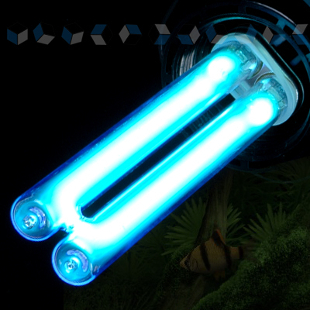 WIKIMEDIA, FRANCIS E. WILLIAMSAlthough ultraviolet (UV) light successfully kills some microbes without introducing harmful chemicals to drinking water, it may not completely disinfect. Instead of killing all bacteria, the water-purification treatment may simply drive some into dormancy, leaving a chance that harmful microbes are revived later on, according to a study published this month (January 13) in Environmental Science & Technology.
WIKIMEDIA, FRANCIS E. WILLIAMSAlthough ultraviolet (UV) light successfully kills some microbes without introducing harmful chemicals to drinking water, it may not completely disinfect. Instead of killing all bacteria, the water-purification treatment may simply drive some into dormancy, leaving a chance that harmful microbes are revived later on, according to a study published this month (January 13) in Environmental Science & Technology.
UV treatment damages bacterial DNA, blocking replication, but it doesn’t disrupt the cell membrane, as other purification techniques such as chlorination do. In the U.S. and Canada, water treatment facilities first disinfect with chlorination and then use UV light as a secondary measure, but many small-scale facilities elsewhere in the world use only the UV treatment.
To explore the risk of treating water only with UV, environmental engineer Xin Yu of the Chinese Academy of Sciences’s Institute of Urban Environment and his colleagues exposed Escherichia coli and Pseudomonas aeruginosa to varying doses of UV light, then counted the colonies that formed in culture and measured the expression of a bacterial gene for a ribosomal subunit. While the treatments reduced colony growth by as much as ...






















